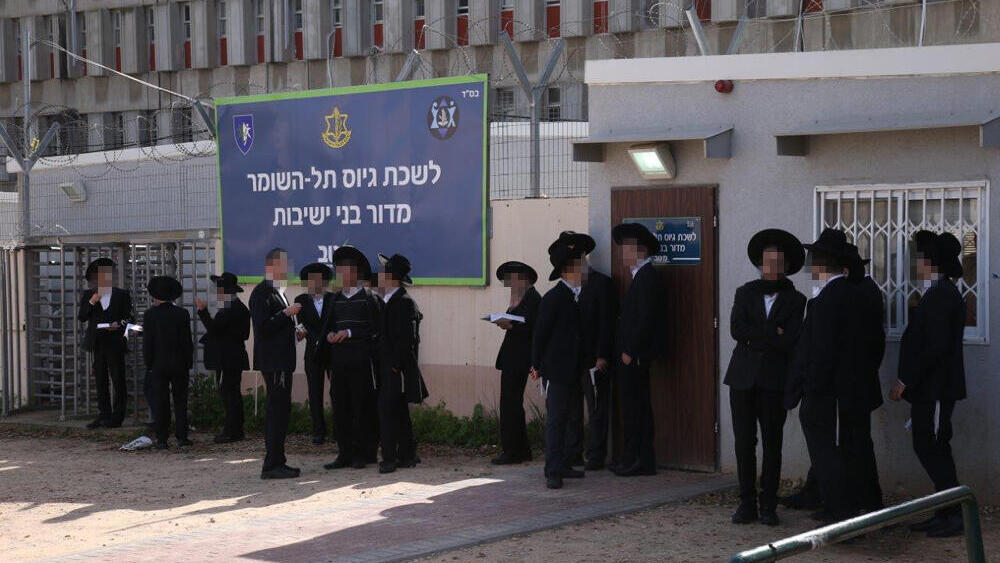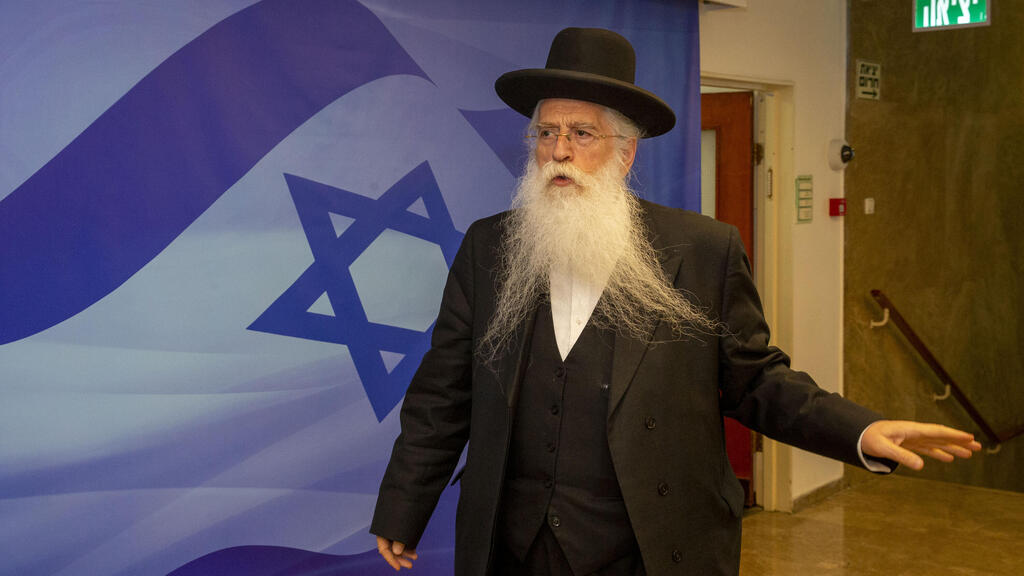The tension in the ultra-Orthodox community has reached a boiling point: Midnight between Friday and Saturday marked the expiration of the legal arrangement that granted an exemption or deferment to young members of the ultra-Orthodox sector from the Israel Defense Forces, meaning that they are now included in the Israel Defense Service Law, requiring every Israeli citizen over the age of 18 to serve in the army.
The law, which expired over the weekend, was passed in the Knesset at the end of 2015 upon the demand of the ultra-Orthodox parties, and replaced the Tal Law, which was invalidated by the Supreme Court in 2012 and also exempted yeshiva students from military service.
Less than two years later, in 2017, the Supreme Court deemed the bill unconstitutional, and ruled that it is unjustified discrimination. The court initially gave the Knesset one year to amend the bill, so that during this period it could arrange the status of the yeshiva students in a different, legal manner. However, at the request of the state, this was delayed 15 times primarily due to the recurring elections between 2019-2022.
Even after the right wing's victory in the most recent elections, the coalition parties have been unable to reach an agreement on an alternative outline that would, on the one hand, preserve the status quo and, on the other hand, be approved by the Supreme Court. Thus, in the never-ending race for another postponement, the politicians and judges lost track of the bigger picture, and the original law expired with no further extensions. Now, the ultra-Orthodox are in a pickle, with even the judges unable to assist any longer.
In an attempt to ease the new situation where every non-enlisted yeshiva student is considered a deserter, the government recently approved a declarative decision stating that their special status will be re-established through legislation in the coming months, during the winter session of the Knesset. According to this decision, during the so-called "interim period" until the new law is approved, the government "instructs the defense minister to direct the chief of staff" not to take steps to draft eligible Haredi men, as long as they "present before the authorities the approval of their studies in a yeshiva based on the needs and demands of the army." Although the authority to grant draft deferrals had been revoked by the Supreme Court in the past, the state has updated the court and requested leniency, asking not to be compelled to enforce the Defense Service Law.
In the ultra-Orthodox factions, there have been differing opinions in recent months between representatives of Shas, who adopted a pragmatic approach, and the hasidim, who sought a declarative achievement as well. The former, led by Aryeh Deri and Moshe Gafni, is in line with the prime minister's procrastination on the issue, believing it would not jeopardize the status of yeshiva students. The latter, led by Yaakov Litzman, did not settle for such a solution, and insisted on reaching a comprehensive coalition agreement on the matter.
Ultimately, the pragmatists set the tone, and the politicians and rabbis agreed to postpone the decision on the issue. However, the mess they now find themselves in suggests that agreeing to Netanyahu's request has backfired on them. Minister of Jerusalem Affairs and Jewish Heritage Meir Porush of the United Torah Judaism party, one of the prominent opponents of the compromise, said in an interview last week with Kol Barama radio, that "I feel like we were conned."
Meanwhile, the coalition will seek to postpone the status of yeshiva students along with the advancement of a governmental outline for remunerating servicemen until the Knesset's winter session. In doing so, they hope to legally justify the exemption from enlistment for the ultra-Orthodox population, which has been invalidated repeatedly, through dual legislation that promotes equality from a different angle: the IDF will become a sort of standing army, whose servicemen receive extensive rights and benefits, and those who do not serve will not be able to enjoy the same benefits.
However, the ultra-Orthodox parties are still divided over to whether they believe it is enough to pass in the Supreme Court or whether a foundational law recognizing Torah study as an important value and contribution to the country is also necessary.




